Entangled Transitions Special Issue in Contemporary European History

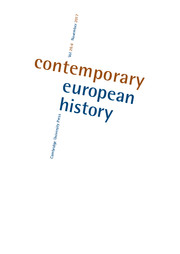 As a result of our successful conference on Entangled Transitions, the Contemporary European History journal has published a special issue (Volume 26, Issue 4, November 2017) featuring a number of presented papers.
As a result of our successful conference on Entangled Transitions, the Contemporary European History journal has published a special issue (Volume 26, Issue 4, November 2017) featuring a number of presented papers.
It features an introductory piece written by Professor James Mark, Kim Christieans and Jose Faraldo on Entangled Transitions: Eastern and Southern European Convergence or Alternative Europes? 1960s–2000s as well as The Spanish Analogy’: Imagining the Future in State Socialist Hungary, 1948–1989 written by Professor James Mark.
Other articles include:
- ‘Communists are no Beasts’: European Solidarity Campaigns on Behalf of Democracy and Human Rights in Greece and East–West Détente in the 1960s and Early 1970s
By Kim Christiaens - Entangled Eurocommunism: Santiago Carrillo, the Spanish Communist Party and the Eastern Bloc during the Spanish Transition to Democracy, 1968–1982
By Jose M. Faraldo - From Enemies to Allies? Portugal’s Carnation Revolution and Czechoslovakia, 1968–1989
By Pavel Szobi - Tourism and Europe’s Shifting Periphery: Post-Franco Spain and Post-Socialist Bulgaria
By Max Holleran
→ The Entangled Transitions Special Issue can be read online via Cambridge University Press Cambridge Core
Call for Applications: EEGA@future – Postdoc Grants for Preparation of Funding Applications
Leibniz ScienceCampus
Eastern Europe – Global Area (EEGA)
Call for Applications: EEGA@future: Postdoc Grants for Preparation of Funding Applications
Deadline for submissions: 5 January 2018
Start of funding: starting from 1 September 2018
Funding period: min. 1 month to max. 6 months
The Leibniz ScienceCampus EEGA
The Leibniz ScienceCampus “Eastern Europe – Global Area” (EEGA) is committed to developing new research perspectives on Eastern Europe, engaging in knowledge exchange activities on the region with stakeholders, and promoting young researchers. It follows the idea that the multi-disciplinary and multi-faceted examination of processes of globalisation are a key for a better understanding of actual societal developments. The focus is on Eastern Europe’s diverse, tension-filled, and sometimes paradoxical globalisation projects “from within” and “from the outside”, and thus, on the self-positioning of Eastern European societies under the global condition.
The EEGA brings together interdisciplinary knowledge and expertise from researchers affiliated with both universities and research institutes in the Leipzig-Jena-Halle science region. Together with partners from the region, the EEGA explores the fields of migration and mobilities; business strategies and political economies; cultural and intellectual perspectives and identities; and political integration in a changing global arena. Overcoming prejudices and clichés, some of which are rooted in the era of the Cold War, and promoting an informed understanding of Eastern Europe in its diverse traditions and positions, developments and (internal) dynamics, are the primary mission.
Research Areas:
The EEGA focuses on five Research Areas:
- Research Area 1: Mobilities and Migration Regimes in Eastern Europe
(Coordination: Judith Miggelbrink and Helena Flam) - Research Area 2: The Self-Positioning of Eastern Europe in a New World Order In-The-Making (Coordination: Frank Hadler and Matthias Middell)
- Research Area 3: Business Strategies and Frameworks of Political Economies
(Coordination: Sebastian Henn, Thomas Glauben and Thorsten Posselt) - Research Area 4: Cultural and Intellectual Perspectives and Identifications
(Coordination: Jürgen Heyde, Yvonne Kleinmann and Stefan Troebst) - Research Area 5: Eastern Europe in Times of Europeanisation
(Coordination: Gert Pickel and Holger Lengfeld)
Details:
We invite for applications for a research/coaching period with the ScienceCampus EEGA in Leipzig, Halle or Jena. The stay may serve the preparation of an application for more extended funding by a national or international science foundation active in the field. The stay at EEGA (Leipzig, Halle, Jena) includes individual coaching by experienced senior researchers and group sessions on intellectual, administrative, organizational and time-specific aspects of writing convincing funding applications and project proposals for submission at third party funding institutions. Applications must be related to the research focus of one or more research areas. Preparatory contact with the respective research area coordinators is advised. As EEGA is devoted to interdisciplinary approaches, applications which connect more than one member institution of the ScienceCampus are highly welcome. The support of visits for the execution of individual research projects unrelated to EEGA activities is not foreseen.
The duration of the stay relates to the scope and type of the application envisaged. It may not exceed 6 months. Start of funding is possible between 1 September 2018 and 1 November 2018.
Commitment:
Scholarship holders are asked to conceptualize, write and finalize a funding application for submission at a national or international science foundation active in the field. Successful applicants commit themselves to publish first results of the research done at EEGA in the Campus’ online journal or in form of a working paper (about 3000 words). EEGA disseminates collaborative research results into academia by open access publications and into the public by organising public events and employing social media. For this dissemination the EEGA closely cooperates with the e-journal “Connections” (http://www.connections.clio-online.net/) in mutually profiting collaboration. The ScienceCampus EEGA publishes about two to three “EEGA@connections” issues every year and has its own column “EEGA in dialogue” on the “Connections” website. Single articles by EEGA Postdoc Fellows shall feature both the discussion of a current state of research as well as the depiction of the specific topic the researcher is currently working on. Shorter scientific reports in the column “EEGA in dialogue” are supposed to give a brief overview of the state of research followed by insights into the research project of the author. The journal’s editors in cooperation with the Steering Committee of the Leibniz ScienceCampus EEGA decide upon the acceptance of submissions for publication and organise the peer-review process.
Postdoc Fellows are kindly invited to present their research focus/project at internal colloquia of the partner institution(s) or at EEGA main events. In case of a successful application approved by a science foundation, the respective research project should be pursued in cooperation with the EEGA member institutions and EEGA activities. Residency in the Leipzig-Halle-Jena region during the stay at EEGA is binding.
Support:
The Leibniz ScienceCampus EEGA supports successful applicants substantially in form of coaching sessions and workshops as well as financially in form of individual scholarships (based on the current rates for research fellowships of the German Research Foundation (DFG)). Rates are defined individually, related to origin and employment situation of the scholarship holder, as well as the duration of the stay in Leipzig, Halle or Jena. Fellowships are intended to cover the recipients’ costs of living in the Leipzig-Jena-Halle science region and may not be used to supplement grants from other funding organizations or income from employment.
Applications must include:
1. Motivation letter
2. Application form (incl. project proposal, contribution to aims and agenda of EEGA, work plan, discussion of potential funding institutions, main cooperation partner(s), knowledge transfer; available at: http://leibniz-eega.de/programmes/applications/)
3. CV (incl. current status of employment, research interests and fields of expertise)
Please submit your application as 1 PDF (max. 18 pages, 6 MB) to leibniz-eega@ifl-leipzig.de.
Contact
Leibniz ScienceCampus Eastern Europe – Global Area (EEGA)
c/o Leibniz Institute for Regional Geography
Schongauerstraße 9, 04328 Leipzig, Germany
Phone +49 341 60055-266
Fax +49 341 60055-198
leibniz-eega@ifl-leipzig.de
Coordination: Lena Dallywater, Melanie Mienert
Spokespersons of the Steering Committee: Prof Dr Sebastian Lentz, Prof Dr Matthias Middell
Call for Applications for Guest Scholars – Leibniz ScienceCampus Eastern Europe – Global Area (EEGA)

Leibniz ScienceCampus
Eastern Europe – Global Area (EEGA)
Call for Applications:
EEGA@enrichment: Short-term Stays for Guest Scholars in Leipzig, Halle and Jena
Deadline for submissions: 15 January 2018
Start of funding: ongoing, starting from 15 May 2018
Funding period: min. 4 days to max. 4 weeks
The Leibniz ScienceCampus “Eastern Europe – Global Area” (EEGA) is committed to developing new research perspectives on Eastern Europe, engaging in knowledge exchange activities on the region with stakeholders, and promoting young researchers. It follows the idea that the multi-disciplinary and multi-faceted examination of processes of globalisation are a key for a better understanding of actual societal developments. The focus is on Eastern Europe’s diverse, tension-filled, and sometimes paradoxical globalisation projects “from within” and “from the outside”, and thus, on the self-positioning of Eastern European societies under the global condition.
The EEGA brings together interdisciplinary knowledge and expertise from researchers affiliated with both universities and research institutes in the Leipzig-Jena-Halle science region. Together with partners from the region, the EEGA explores the fields of migration and mobilities; business strategies and political economies; cultural and intellectual perspectives and identities; and political integration in a changing global arena. Overcoming prejudices and clichés, some of which are rooted in the era of the Cold War, and promoting an informed understanding of Eastern Europe in its diverse traditions and positions, developments and (internal) dynamics, are the primary mission.
Research Areas
The EEGA focuses on five Research Areas:
- Research Area 1: Mobilities and Migration Regimes in Eastern Europe
(Coordination: Judith Miggelbrink and Helena Flam) - Research Area 2: The Self-Positioning of Eastern Europe in a New World Order In-The-Making
(Coordination: Frank Hadler and Matthias Middell) - Research Area 3: Business Strategies and Frameworks of Political Economies
(Coordination: Sebastian Henn, Thomas Glauben and Thorsten Posselt) - Research Area 4: Cultural and Intellectual Perspectives and Identifications
(Coordination: Jürgen Heyde, Yvonne Kleinmann and Stefan Troebst) - Research Area 5: Eastern Europe in Times of Europeanisation
(Coordination: Gert Pickel and Holger Lengfeld)
Details
The EEGA invites for applications for a short-term stay of visiting scholars at the member institutions of the ScienceCampus in Leipzig, Halle and Jena. We explicitly invite scholars at the PostDoc-level from the region to stay at the EEGA for a short-term fellowship, but also encourage applications from senior researchers from other countries who are active in the fields of Eastern European Studies, European Studies, Global and Area Studies, and the disciplines involved in the EEGA.
We welcome proposals for short stays for a) guest lectures or other teaching formats in the MA- and PhD-programmes affiliated with the EEGA, b) workshops and networking meetings with junior and senior scholars in the EEGA, and c) collaboration in joint publication projects.
Applications must be related to the research focus of one or more research areas of the EEGA. Preparatory contact with the respective research area coordinators is advised. As the EEGA is devoted to interdisciplinary approaches, applications which connect more than one member institution of the ScienceCampus are highly welcome.
The duration of the stay relates to the scope and type of activity envisaged. It may not exceed 4 weeks. The support of visits for the execution of individual research projects unrelated to EEGA activities is not foreseen. Start of funding is possible between 15 May and 15 July 2018.
→ Further details and how to apply can be found in the Full Call for Applications
[Top]Imres Kertesz Kolleg Jena Fellowships: Call for Applications
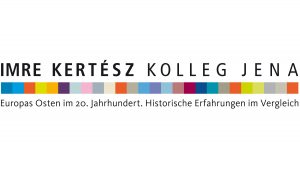 Imres Kertesz Kolleg Jena Fellowships 2018-2019
Imres Kertesz Kolleg Jena Fellowships 2018-2019
Call for applications, July 2017
Application deadline: 15 September 2017
The Imre Kertész Kolleg invites applications for Fellowships for the academic year 2018-2019 for periods of residence from three months up to a full academic year. Applications are invited from noted and established scholars in the history of Central and Eastern Europe or neighboring disciplines such as sociology, anthropology, political sciences, philosophy, literary studies or linguistics relevant to the region.
Fellows are expected to conduct a larger scholarly project corresponding to the research profile of the Kolleg. As the Fellowships are writing fellowships either for conceptualizing or finalizing work, fellows are expected to work at the Imre Kertész Kolleg and to reside in Jena for the duration of their fellowship.
Stipends range from € 3.000 to € 5.300 per month according to the academic position at the home institution. The Kolleg will provide work space, support by student research assistants, and will help finding appropriate accommodation in Jena.
Further information on the Kolleg can be found here: www.imre-kertesz-kolleg.uni-jena.de
Application must include:
- curriculum vitae
- list of publications
- project proposal in English (not exceeding 5 pages)
- a statement on the relevance of the research project to the Kolleg’s research profile (not exceeding 2 pages)
Applications must be received no later than 15 September 2017 and should be sent electronically as one single PDF to the directors of the Kolleg:
Prof. Dr. Joachim v. Puttkamer
Dr. Michal Kopeček
Imre Kertész Kolleg Jena
Leutragraben 1
07743 Jena
Germany
Email: imre-kertesz-kolleg@uni-jena.de
It is advised to study the Notes for Applicants on: http://www.imre-kertesz-kolleg.uni-jena.de/index.php?id=73&l=1
After completion of an external review process, successful candidates will be notified by December 15, 2017.
Informal inquiries may be addressed to the Managing Director of the Kolleg:
Dr. Raphael Utz, on raphael.utz@uni-jena.de or +49-3641-944073.
→ Download the Call for Applications: Imres Kertesz Kolleg Jena Fellowships
[Top]Raluca Grosescu article on Judging Communist Crimes in Romania published
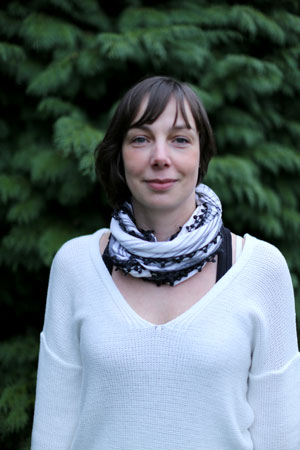 Raluca Grosescu’s latest article has been published in the International Journal of Transitional Justice. The article entitled Judging Communist Crimes in Romania: Transnational and Global Influences, shows how the current shifts in Romanian jurisprudence have been built upon, and have drawn inspiration from, a recent global convergence towards the use of ICL for addressing the crimes of dictatorial regimes and the obstacles to their prosecution, such as amnesties or statutory limitations.
Raluca Grosescu’s latest article has been published in the International Journal of Transitional Justice. The article entitled Judging Communist Crimes in Romania: Transnational and Global Influences, shows how the current shifts in Romanian jurisprudence have been built upon, and have drawn inspiration from, a recent global convergence towards the use of ICL for addressing the crimes of dictatorial regimes and the obstacles to their prosecution, such as amnesties or statutory limitations.
Abstract
In 2016, over 25 years after the fall of the communist regime, the Romanian Supreme Court of Justice convicted for the first time two former military officials for political crimes perpetrated in the 1950s, the harshest repressive period of the previous dictatorship. The verdicts marked a radical break with the prior legal approaches to prosecuting communist crimes in this country inasmuch as international criminal law (ICL) was now employed in order to overcome impunity. This article shows how the current shifts in Romanian jurisprudence have been built upon, and have drawn inspiration from, a recent global convergence towards the use of ICL for addressing the crimes of dictatorial regimes and the obstacles to their prosecution, such as amnesties or statutory limitations. It emphasizes the importance of noncoercive exogenous influences in enabling changes in the Romanian process of dealing with the past.
[Top]






 Professor James Mark
Professor James Mark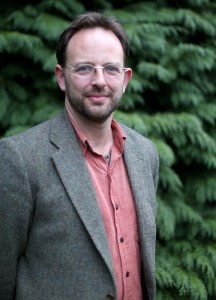 Professor James Mark’s co-edited volume Secret Agents and the Memory of Everyday Collaboration in Communist Eastern Europe is now available through Anthem Press.
Professor James Mark’s co-edited volume Secret Agents and the Memory of Everyday Collaboration in Communist Eastern Europe is now available through Anthem Press.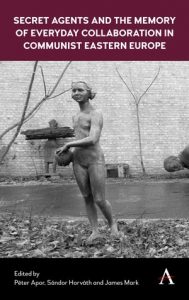
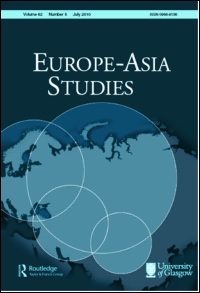 Nelly Bekus’ article Ideological Recycling of the Socialist Legacy. Reading Townscapes of Minsk and Astana has recently been published in the Journal for Europe-Asia Studies, Volume 69, Issue 5, July 2017.
Nelly Bekus’ article Ideological Recycling of the Socialist Legacy. Reading Townscapes of Minsk and Astana has recently been published in the Journal for Europe-Asia Studies, Volume 69, Issue 5, July 2017.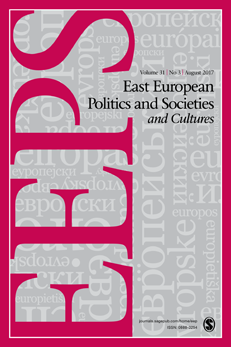 Ljubica Spaskovska’s article The “Children of Crisis”: Making Sense of (Post)socialism and the End of Yugoslavia has just been published in the Journal of East European Politics and Societies, Volume 31, Issue 3, August 2017. It forms part of a special section on the Genealogies of Memory, guest edited by Ferenc Laczó and Joanna Wawrzyniak.
Ljubica Spaskovska’s article The “Children of Crisis”: Making Sense of (Post)socialism and the End of Yugoslavia has just been published in the Journal of East European Politics and Societies, Volume 31, Issue 3, August 2017. It forms part of a special section on the Genealogies of Memory, guest edited by Ferenc Laczó and Joanna Wawrzyniak.